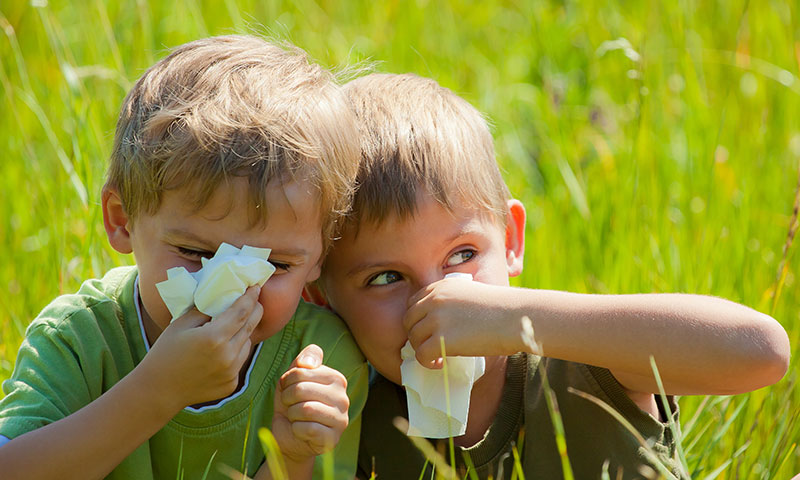During spring and summer, do you experience sneezing, itching, and watery eyes? You’re probably allergic to pollen, the fine powder from the stamen of flowering plants and grass. When pollen is dispersed through the air, it enters the nose, mouth, and eyes and causes an allergic reaction called hay fever or Rose fever. While scientists aren’t exactly sure why some immune systems mistake pollen as a harmful substance, the Asthma and Allergy Foundation of America estimates that over 20 million people suffer from hay fever.
What Are Hay Fever Symptoms?
Symptoms of hay fever can include:
- Itchy nose, mouth, eyes, throat, and skin
- Runny nose
- Sneezing
- Watery eyes
- Stuffy nose (nasal congestion)
- Coughing
- Clogged ears and decreased sense of smell
- Sore throat
- Dark circles under the eyes
- Puffiness under the eyes
- Fatigue and irritability
- Headache or migraine
When Is Grass Pollen Allergy Season?
Grass pollen allergy season typically begins in June but may begin earlier in some states. Grass pollen levels will last into late Summer in New York City. If you are allergic to tree pollen, which begins in spring, there is a high possibility that you are allergic to grass pollen as well. However, You may only be allergic to one type of pollen. We suggest getting allergy-tested at one of our allergy centers in NYC to determine which type of pollen will aggravate your symptoms during the different pollen seasons. This will help you identify your exact season, help you track the pollen count more accurately, and anticipate which medicines to take, when to start taking them, and for how long you should be taking them.
To determine the specific pollen levels in your area, be sure to check the daily pollen count reports. At NY Allergy and Sinus Centers, we provide the daily pollen count online. Be sure to follow us on Instagram and Twitter for the latest updates.
Can You Avoid Grass Pollen Allergy This Season?
The first step in avoiding your grass pollen allergy symptoms is to reduce your exposure to pollen. Try not to engage in outdoor activities on days when the pollen count is particularly high. It’s also helpful to take daily allergy medication at night instead of in the morning to allow time for the medication to work. If you aren’t sure which over-the-counter or prescription medication is best for your symptoms, contact our allergy experts at NY Allergy & Sinus Centers for a complete treatment plan.
For patients who want to stop taking daily allergy medication even if for only a few weeks of the year, we recommend allergy immunology. Allergy immunology, also known as allergy shots, causes the patient’s immune system to become less and less sensitive to grass pollen. This form of allergy treatment is a better solution for treating your allergies long term. For more information on this available treatment, contact our Board-Certified Allergists at (212) 686-6321.

